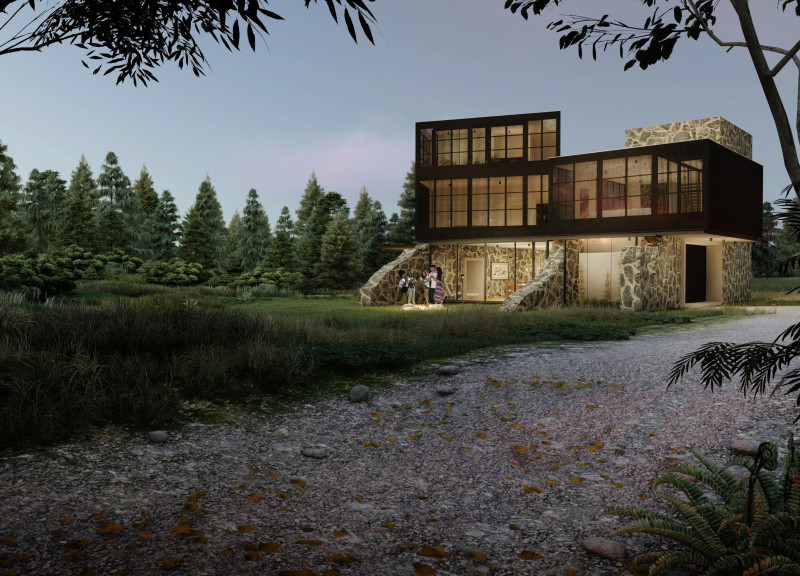5 key facts about this project
The Teamakers Guest House is a carefully designed space that connects people with each other and the surrounding natural environment. Located in a rural setting, the design integrates the existing stone barn with modern elements. This combination creates a welcoming atmosphere that encourages community interaction while providing a peaceful retreat into nature.
Design Concept
The overall concept focuses on two main types of spaces: those that promote communal activities and those that foster individual experiences. The communal spaces are on the ground floor, which serves as a gathering area for guests. Surrounded by the original stone walls, this part of the guest house emphasizes togetherness and shared moments, making it an inviting space for socializing.
Spatial Organization
In contrast, the upper floors are designed to connect with the views of the landscape. These outward-looking spaces allow guests to enjoy the beauty of nature directly from their rooms. The layout provides flexibility, as residents can choose to open their living spaces to the outside or close them off for privacy. This balance meets different needs, offering both communal areas and personal retreats.
Materiality
The choice of materials contributes significantly to the character of the guest house. Reclaimed wood is used for both flooring and wall cladding. This adds warmth to the interior while respecting the historical context of the existing barn. The combination of wooden elements with preserved stone walls creates an interesting contrast that enhances the visual appeal of the space.
Interior Layout
Inside, the layout is practical and comfortable. The ground floor includes a large living room, an open kitchen, and a dining area. This arrangement encourages social interaction while providing a friendly atmosphere. A semi-covered yoga pavilion adds another dimension, allowing guests to engage in physical activities. Each area is carefully positioned to maximize natural light and views, enriching the overall experience for everyone.
Landscaping around the guest house incorporates local plants, further connecting the built environment to nature. This thoughtful landscaping enhances the sense of place and creates opportunities for guests to immerse themselves in their surroundings.



























